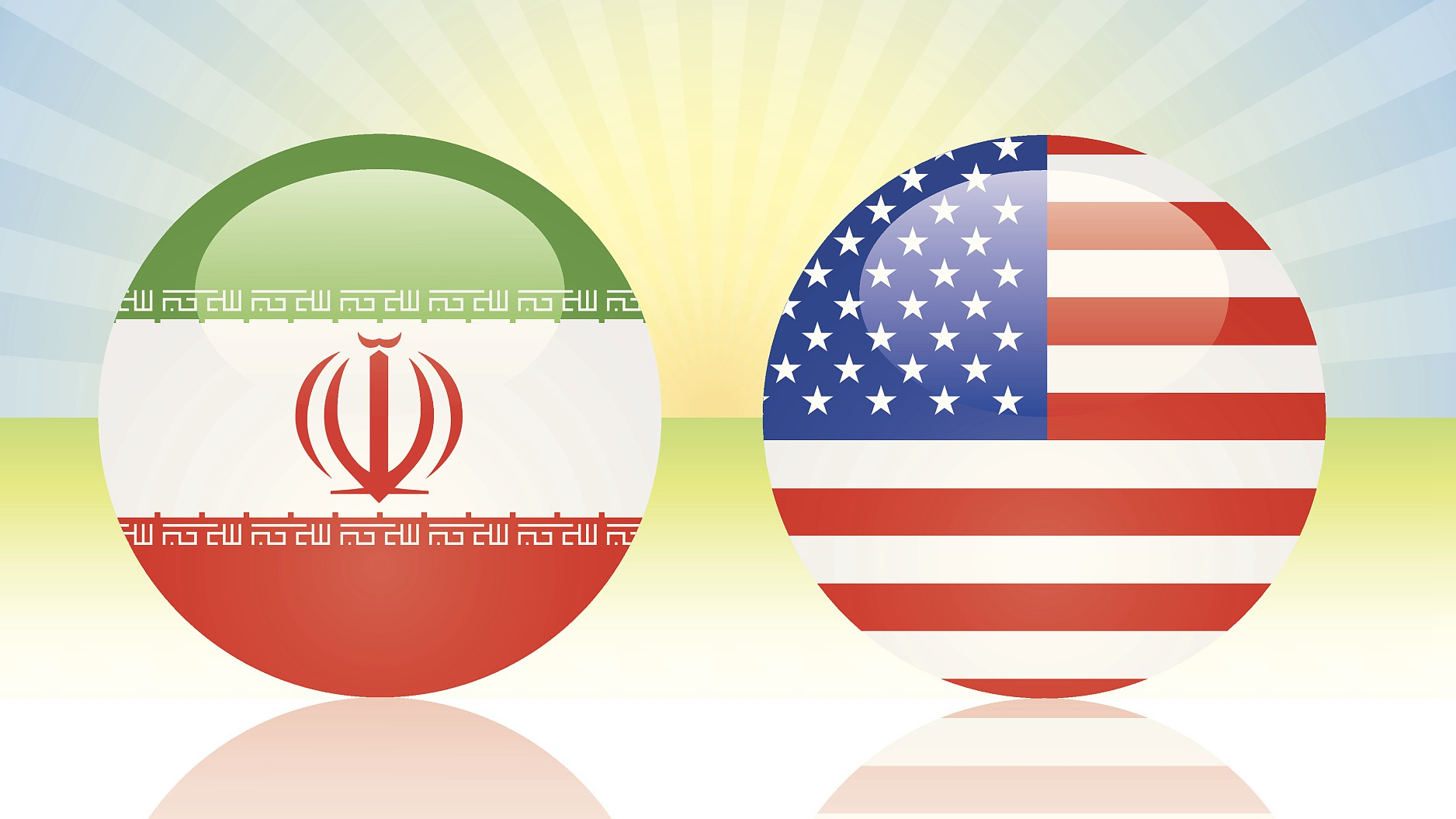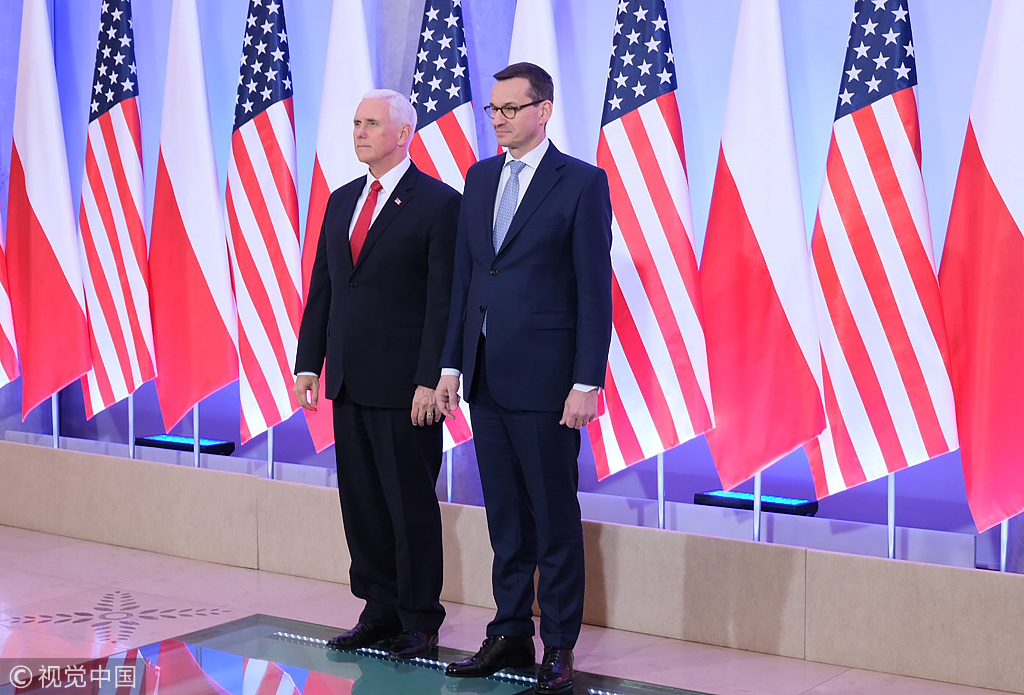
Opinion
10:31, 15-Feb-2019
Opinion: Warsaw conference exposes global divide on Iran policy
Updated
12:04, 15-Feb-2019

Editor's Note: The following is an edited translation of a commentary from the Chinese-language "Commentaries on International Affairs" published on China Plus on February 14, 2019.
A highly-promoted conference called the "Ministerial to Promote a Future of Peace and Security in the Middle East" has wrapped up in Warsaw. The conference, led by the United States, focused primarily on how to curb Iran's power and influence, which predictably drew the ire of the Iranians. Given that Russia declined to take part, and major European countries including Britain, France, and Germany were so disinterested as to only send participants below the rank of cabinet officials, it shouldn't be a great surprise that no concrete outcomes emerged from the gathering.
It was a surprise, though, when Poland agreed to host the meeting, given the damage it would inevitably do to ties between Warsaw and Tehran. During World War Two, about 100,000 Poles fled to Iran to escape from Nazi Germany, and settled there for the remainder of their lives. There are still Polish cemeteries in Iran. Iran's Foreign Minister Mohammad Javad Zarif obviously had this shared history in mind when he criticized Poland's decision: “Polish Govt can't wash the shame: while Iran saved Poles in WWII, it now hosts desperate anti-Iran circus.”
That Poland would agree to host the meeting in the first place speaks to that country's desire to maintain its close relationship with the U.S. For many years now, Poland has been hoping to rely on the U.S. to counter Russia as relations between Warsaw and Moscow grew tense. And the American military is due to open a new base in Poland in April. Poland didn't want this plan to be disrupted, so it chose to submit to the will of the U.S. But given the lukewarm relations between America and Europe at the moment, Poland's high-profile move to support the U.S. puts it at risk of alienating itself from its European partners.

U.S. Vice President Mike Pence, left, and Mateusz Morawiecki, Poland's prime minister, pose for a photograph at the Chancellery in Warsaw, Poland, February 14, 2019. /VCG Photo
U.S. Vice President Mike Pence, left, and Mateusz Morawiecki, Poland's prime minister, pose for a photograph at the Chancellery in Warsaw, Poland, February 14, 2019. /VCG Photo
Not only has the Warsaw conference strained ties between Poland and Iran, and potentially between Poland and some of its Western neighbors, it has also done nothing to bridge the gap between the U.S. and Europe on their respective policies regarding Iran. The European Union is unhappy with the development of Iran's missile program and its exports of armed forces to other countries in the Middle East.
But the EU isn't willing to follow in the footsteps of the U.S. and use high-pressure tactics such as sanctions against Iran. Instead, the Europeans have introduced measures to encourage European companies to maintain their trade ties with Iran. The European Union was so opposed to the excessive attention being paid to Iran at the meeting that Federica Mogherini, its High Representative for Foreign Affairs and Security Policy, was absent from the gathering. This is a strong signal that the European Union is not interested in standing beside the U.S. as it publicly attacks Iran.
The U.S. could have reasonably predicted in the lead up to the Warsaw conference that little was going to be achieved. But convening the conference was a warm-up exercise for Washington, as it prepares for the upcoming Munich Security Conference, where Iran is again expected to attract a lot of heat. It also gave Washington an opportunity to show its allies in the Middle East – Israel and Saudi Arabia in particular – that it's still trying hard to curb Iran's influence in their region.
That the U.S. was given the cold shoulder at the Warsaw conference, and the absence of major players such as Russia, show that there remains a lack of unity in the international community as to how to deal with Iran. It also shows that Washington's goal of quickly pulling together an alliance to lean heavily on Iran remains well out of reach. But perhaps most of all, it shows that there is still a long way to go before the world can enjoy the prospect of stable peace in the Middle East.
(If you want to contribute and have specific expertise, please contact us at opinions@cgtn.com)

SITEMAP
Copyright © 2018 CGTN. Beijing ICP prepared NO.16065310-3
Copyright © 2018 CGTN. Beijing ICP prepared NO.16065310-3